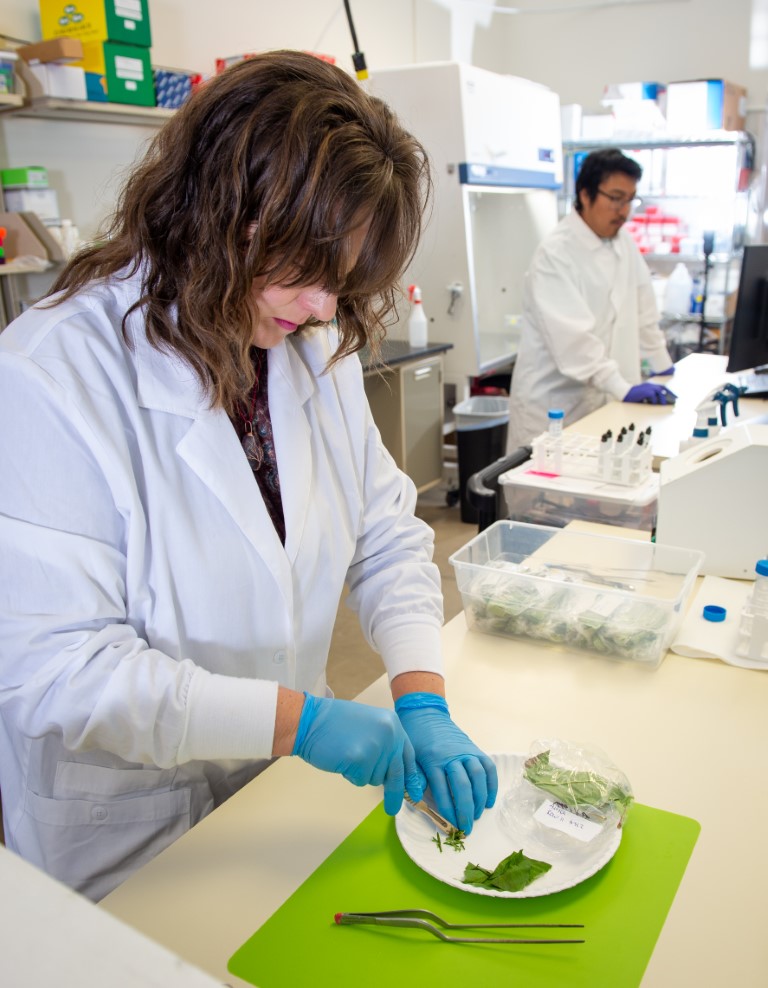PULLMAN, Wash.
July 1, 2021 – Agricultural technology company NuPhY Plants has joined a select group of Pacific Northwest labs deemed competent to test for Little Cherry Virus 2 and X-disease. By passing a proficiency test administered by Washington State University, a global leader in plant-disease research, NuPhY is able to test plant material for growers in the region.
A major Pacific Northwest crop, cherry is being seriously impacted by Little Cherry Virus 2 (LChV-2), a disease affecting nearly 50% of total production. Virus-caused diseases are a major threat to most horticultural crops. LChV-2-infected trees produce small, unmarketable fruit. Similarly, X-disease, for which NuPhY also has the capability to test, is another malady that is impacting sweet cherries. It results in small, deformed and bitter-tasting fruit. X-disease is caused by a phytoplasma that interferes with tree growth and development. It is currently at epidemic levels in the Columbia River basin, and at high levels in key fruit-growing areas such as Yakima, Benton, and Franklin counties in Washington State. Viral plant infections cost the global horticultural industry upwards of $60 billion every year.
NuPhY specializes in the use of a disease-detection method called quantitative reverse transcription polymerase chain reaction, or RT-qPCR.
“By making millions of copies of a target organism’s genetic material—for example of virus or phytoplasma RNA—we are able to detect the presence of pathogens at extremely low levels, and thus diagnose an infection,” says Amy Mraz, a genetic analysis scientist with NuPhY. Mraz also points out that RT-qPCR is the same method used to diagnose COVID-19 infections.
While passing WSU’s proficiency test is not a requirement for offering disease-detection services, doing so helps maintain a kind of gold standard among cooperating labs. The test ensures that labs are using the most current detection protocols and that growers are receiving the highest quality data regarding the condition of their trees.
NuPhY scientist Dr. Seanna Hewitt says that the company wants to go further by developing a multi-organism test based on an emerging total RNAseq-based platform.
“This will allow us to simultaneously detect many pathogens present in a sample or group of samples, which will save growers and nurseries a lot of time and effort in determining which of their plants are infected. We will begin our testing with the aim of detecting viruses and phytoplasmas in apple, cherry, and pear. Once we have developed a successful protocol, we plan to extend our testing to include a wide range of horticultural crops.”
Amit Dhingra, chief science officer for NuPhY, says that through this research the company aims to establish a “platinum standard” for disease detection in horticultural crops. “Time is definitely money with fruit trees, which often take as long as five years before they begin producing a marketable crop,” Dhingra adds. “Knowing early which plants need to be culled will be a game changer for growers.”
NuPhY’s development of the total RNAseq test is being funded by the Washington State Department of Agriculture’s Nursery Advisory Committee. A complementary research program at NuPhY funded by USDA uses double-stranded RNAseq, a sequencing method that is sensitive to the presence of viral genetic material.
Hewitt says that “both approaches can be modified later on down the road to target additional pathogens, whether viral, bacterial, or fungal.”


